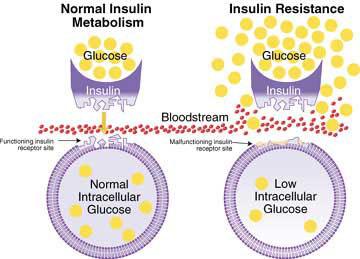Welcome Back!!
Remember – if you are more than 20lbs (10 KG) overweight the chances are your metabolism is slowing and may even, in terms of fat loss, be broken.
Today in part 2 of how to fix a broken metabolism we look at the Affect of Diet on Hormones:
The Affect of Diet on Hormones:
- Fat Storage
- Fat Sparing
- Fat Burning
The main hormones in question are:
- Cortisol – the stress & belly fat storing hormone
- Leptin – the anti-starvation hormone,
- Ghrelin – the ‘I’m hungry‘ hormone
- Insulin – The blood sugar controller
In the last post we looked at the effect various foods can have on our metabolism – either raising it or blunting it. Now we need to look at the effect of diet on our hormones. Hormones are responsible for just about every physiological / chemical process that starts or stops in our bodies.
How we react to stress, how happy we are, how quickly a bruise disappears, a cut heals, a fingernail grows, how much lean tissue we create, how much fat we store (& where), gain or burn for fuel, how & what is repaired – our hormones control all of this and more besides.
To lose a pound of fat we have to shed / use / forego 3500 calories. That is the mathematical fact and in the past most fat loss programs looked at cutting calories as the main way to lose fat. What they did not take into account was the type of calories (see http://bodyshapeshiftersonline.com/?p=100) or the unintended consequences of calorie restriction on our body’s hormonal systems.
Our bodies equate a sudden & sustained drop in calories (especially those from carbohydrates) as a famine situation and they have a sophisticated defence system to stop us starving. If our body thinks we are starving then these hormonal systems kick in and fat loss becomes that much harder.
In many ways successful fat loss has more to do with our body’s hormonal environment than any other factor. As important as exercise and metabolic training is, as important as sleep and the right fuel is – the battle to lose fat is won or lost largely on the hormonal side. And this side of the equation is incredibly complex. Because of this complexity the discussion on hormones & their manipulation here will be necessarily lacking in depth and detail.
Unlike poking out your tongue, whistling, lifting your arm, rolling your eyes or breathing more deeply we cannot consciously control our hormones or their actions. But we can manipulate them in a gross sense through diet, sleep and exercise. Further if we know what certain hormones do and what triggers their actions we can at least alter our internal environment enough to make these hormones work with us rather against us as we work on losing body fat.
Cortisol:
Cortisol is not a villain – it is essential to our health and performs many beneficial functions. Cortisol is released in response to physical, emotional & mental stress. If this stress is constant it signals your body that it’s under attack and your body responds by
increasing the amount of cortisol in circulation. Through cortisol, our bodies by increase our belly fat reserves. This location not only offers protection to our organs but also positions this fuel source for easy availability for sudden energy needs.
Too much cortisol has the following effects:
- Increased belly fat storage
- Increased sugar cravings
- Lowered immune system
- Slower healing
- Increased lean tissue breakdown
- Decreased Liver function
- Impaired cognitive performance
- Suppressed thyroid function
- Blood sugar imbalances such as hyperglycaemia
- Decreased bone density
- Higher blood pressure
- Higher LDL (the ‘bad’ cholesterol)
- Lower HDL (the ‘good’ cholesterol)
So how do we manipulate our cortisol levels?
Firstly by getting more sleep. Cortisol levels can increase by up to 30% just from missing some sleep. Getting at least 8 hours a night is a solid way to reduce Cortisol.
Secondly by lifting heavy weights. Although Cortisol is released in response to stress and weight lifting is a physical stress – lifting heavy weights also increases the release of Human Growth Hormone. HGH has many actions but one of which is to reduce cortisol levels. (HGH levels also increase with sleep – another reason to use sleep to blunt cortisol) By heavy weight lifting that increases HGH release
Thirdly by eating frequently. It takes only 14 days to kick in fully but by eating ‘mini-meals’ no more than 3 hours apart, during the day has been shown to reduce Cortisol levels by up to 17%.
Lastly decrease your intake of simple starches (breads, pastas, processed junk) and sugars. In a vicious circle increased sugar intake increases the release of cortisol which in turn increase the craving for sugar which…
Leptin
Sharply lowering carbs creates lower leptin levels in the body. Falling leptin levels triggers signals to the brain suggesting that a famine is imminent and that the body needs to slow  the metabolism, hold onto fat and try to maintain the current state of homeostasis in terms of body composition. Low leptin levels are the surest way to hold onto body fat.
the metabolism, hold onto fat and try to maintain the current state of homeostasis in terms of body composition. Low leptin levels are the surest way to hold onto body fat.
Fortunately it is relatively easy to fix – add more carbs back into your diet, and eat 5 – 6 times a day. Whilst it takes a week for leptin levels to drop, they can be replaced with only a day of carb loading. This is the thinking behind carb cycling diets.
Ghrelin
Ghrelin is the hormone which controls cravings – heightened levels of it mean that your appetite is elevated. Ghrelin reacts in concert with Leptin so long carbs, sustained low calorie intake and low leptin levels means that ghrelin levels rise and you are hungry. The fix for ghrelin is the same for leptin – add in more carbs and if leptin rises ghrelin will fall and appetite drops off as well.
Insulin
Insulin is most associated in people’s minds with diabetes and fat storage – two things no-one wants. However a bit like Cortisol Insulin is not a villain – it is the main hormone responsible for helping your body recover properly after exercise. Insulin increases blood
transport to and from your muscle cells so the “waste products” of exercise, like carbon dioxide, can be removed; helps reduce elevated cortisol levels that are formed during intense exercise, which helps reduce stress on your body and ensures that the muscles get sufficient nutrients for repair.
Insulin is both a storage and a transport hormone. It transports glucose from the blood into the muscles (&liver) to replenish glycogen stores. When these are full it then changes to a storage medium and moves the excess glucose into your body’s fat cells.
So if your glycogen stores (muscle & liver sites) are full and you eat enough simple carbs to cause a blood sugar spike then insulin spikes as well and stores the excess glucose in
the fat cells. Creating a ‘spike’ in blood sugar causes the body to ‘over react’ and release a surge of insulin. This causes a sudden drop in blood sugar creating tiredness and increased fat storage.
Unfortunately high insulin levels triggers a halt in fat burning when there is glucose present in the blood stream. Basically Insulin activates the shift from fat to glucose burning.
We can manipulate Insulin by:
- Eating 5-6 times a day (seeing a pattern here?) which keeps blood sugar levels & therefore insulin levels more stable.
- Eating complex carbs and avoiding simple carbs, sugars & starches which quickly metabolise into blood sugar.
- Cut out processed foods as much as possible – including Bread, Biscuits, Cakes
- Basically up your vegetable and fruit intake, cut out the grain based foods…
- Increasing the amounts of healthy fats in our diet.
Don’t forget our next post will look at the ways that you can use the burn rate of different macronutrient types, meal timings & meal frequency to recondition your metabolism.
So we can manipulate our hormones by eating 5 -6 times a day, avoiding / reducing simple carb intake, getting enough sleep and exercising with heavy weights.
Next time we’ll look at the Thermic Effect of Food (TEF)
Thermic Effect of Food
- Macronutrient ‘Burn rates’
- Food timing
- Meal Frequency
Don’t forget our next post will look at the ways that you can use just eating food itself to recondition your metabolism.
Be well!!






I absolutely love your blog and find most of your post’s to be exactly I’m looking for. Does one offer guest writers to write content for you personally? I wouldn’t mind composing a post or elaborating on most of the subjects you write in relation to here. Again, awesome web site!
Thnaks for the kind words!!
Guest blogs are always welcome if they are reciprocal…
Be well.
Very Good Article! nice and informative tips.. I already bookmark your blog......
Well mcaadamia nuts, how about that.
Pingback: Vedic math guy